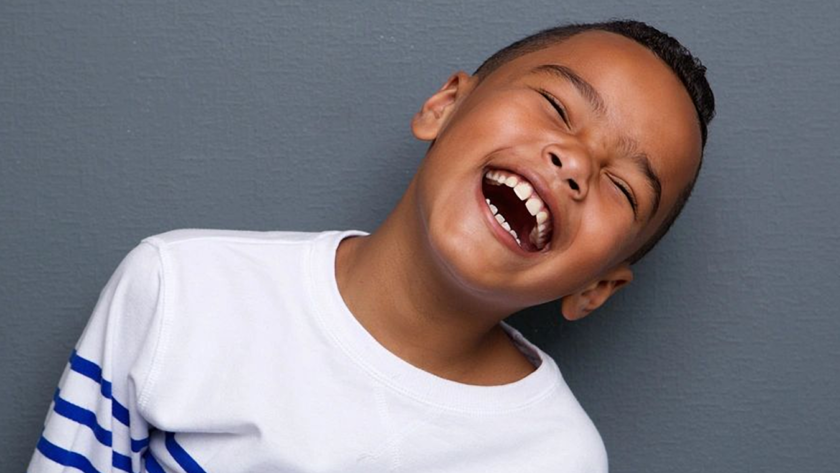Children, like adults, experience stressors of all kinds, but they are less likely to talk about or release their stress. So how do you help kids when they are under pressure from school or feeling stressed out due to issues at home or with friends?
Be mindful that laughter is an important stress reliever for both adults and children, but it is also important to be able to talk about the stressors and acknowledge them. Remember that some people use laughter or humor as a cover up for deeper emotions and never address underlying sadness or anger. However, used briefly and at the right time, humor and laughter can be very beneficial when you cannot talk about what is bothering you or your child and you need to get through the moment.
Kids love to laugh and find joy and happiness in the simple things in life. They also tend to live in the moment, so helping them to find something to laugh about actually does release stress and can be beneficial to their health. Recent research conducted by the Mayo Clinic finds both short- and long-term benefits:
Short-term benefits
A good laugh has great short-term effects. When you start to laugh, it doesn’t just lighten your load mentally, it actually induces physical changes in your body. Laughter can:
- Stimulate many organs. Laughter enhances your intake of oxygen-rich air, stimulates your heart, lungs and muscles, and increases the endorphins that are released by your brain.
- Activate and relieve your stress response. A rollicking laugh fires up and then cools down your stress response, and it can increase and then decrease your heart rate and blood pressure. The result? A good, relaxed feeling.
- Soothe tension. Laughter can also stimulate circulation and aid muscle relaxation, both of which can help reduce some of the physical symptoms of stress.
Long-term benefits
Laughter isn’t just a quick pick-me-up, though. It’s also good for you over the long term. Laughter may:
- Improve your immune system. Negative thoughts manifest into chemical reactions that can affect your body by bringing more stress into your system and decreasing your immunity. By contrast, positive thoughts can actually release neuropeptides that help fight stress and potentially more-serious illnesses.
- Relieve pain. Laughter may ease pain by causing the body to produce its own natural painkillers.
- Increase personal satisfaction. Laughter can also make it easier to cope with difficult situations. It also helps you connect with other people.
- Improve your mood. Many people experience depression, sometimes due to chronic illnesses. Laughter can help lessen your stress, depression and anxiety and may make you feel happier. It can also improve your self-esteem.
Try our new Laughter Therapy Cube Game! Guaranteed to make you laugh!
- Created and developed by a Licensed Professional Counselor
- 5 games in 1: Use as a laughter icebreaker, to share a problem or concern, and to learn new coping skills
- Use laughter therapy cubes as a fun therapeutic tool with kids, teens and adults in a variety of settings
- The game includes one each of die: Time-line, Location, Emotion, Issue
- For counselors, teachers, mental health providers, and families
- Use for individual, group or family play sessions
